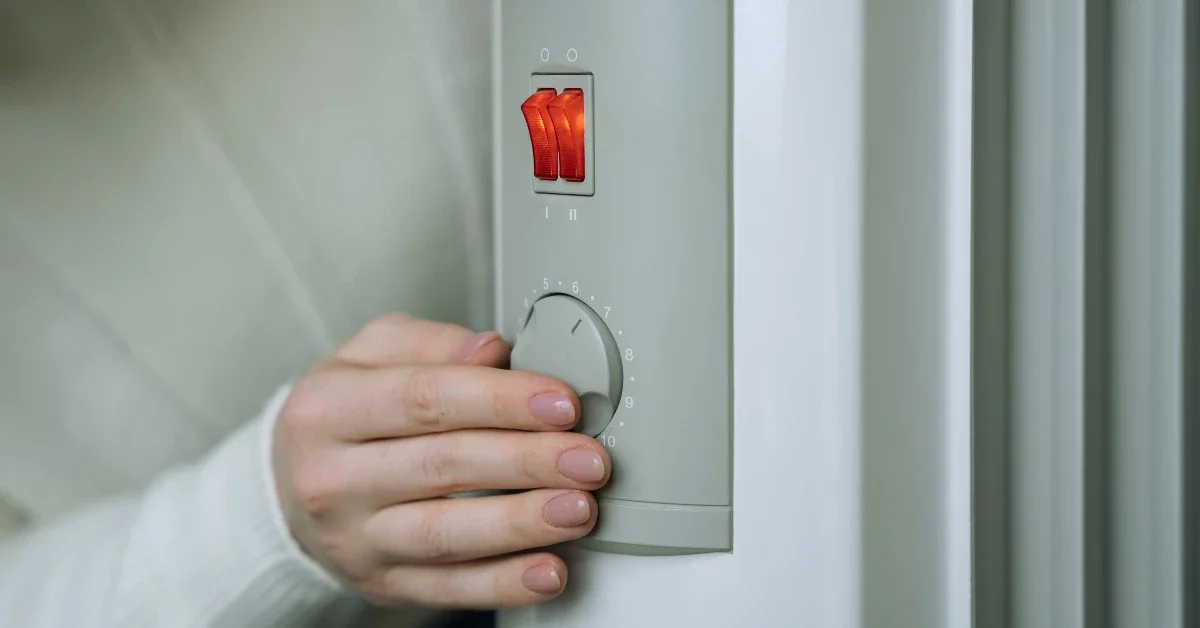Is Landlord Responsible for Water Heater? – Rental Awareness
Yes, landlords are typically responsible for providing and maintaining water heaters in rental properties. As a tenant, you rely on your landlord to take care of certain aspects of your home or apartment, including appliances like water heaters.
However, the specifics of who pays for repairs or replacements may depend on the terms of your lease agreement.
If you notice any issues with your water heater, it’s important to contact your landlord or property manager right away to avoid larger problems down the road.

Understanding The Landlord And Tenant Responsibilities
As a tenant or landlord, it’s important to understand your rights and obligations. Here are some key points you should know:
- Landlords are responsible for maintaining a safe and habitable living environment for their tenants.
- Tenants have the right to privacy and peaceful enjoyment of their homes.
- Both parties are responsible for ensuring the rental agreement is adhered to.
Rental Agreements And Responsibilities Outlined
The rental agreement outlines the responsibilities of both the landlord and tenant. Here are some key points to keep in mind:
- The rental agreement will state who is responsible for maintaining and repairing the water heater.
- Tenants are responsible for reporting any issues with the water heater to their landlord promptly.
- If the tenant causes damage to the water heater, they may be responsible for the cost of repairs or replacement.
Importance Of Understanding Responsibilities Before Signing A Lease
It’s crucial to understand your responsibilities before signing a lease to avoid conflicts down the line. Here are some things to keep in mind:
- Make sure the rental agreement clearly outlines who is responsible for the water heater.
- Ask your landlord to explain any terms or responsibilities you don’t understand.
- Ensure that you have an understanding of your responsibilities as a tenant to ensure you don’t accidentally cause damage to the property.
Remember, understanding your rights and obligations as a tenant or landlord is essential for maintaining a healthy and constructive relationship.
Who Is Responsible For Water Heater Maintenance And Repairs?
As a tenant or landlord, it is essential to understand who is responsible for water heater maintenance and repairs.

Neglecting these responsibilities can lead to costly and potentially hazardous consequences. Here are key points to consider:
Landlord’S Responsibility For Maintenance And Repairs
The landlord is typically responsible for ensuring that the rental property is maintained and the necessary repairs are taken care of.
Here are the factors that determine the landlord’s responsibility when it comes to the water heater:
Age of water heater
If the water heater is relatively new and still under warranty, the landlord will likely be responsible for maintenance and repairs.
However, if the water heater is old, the tenant may be responsible for any repairs.
Cause of damage or malfunction
If the damage or malfunction is due to normal wear and tear, the landlord will be responsible for repairs.
However, if the damage or malfunction is due to the tenant’s negligence or intentional actions, the tenant may be responsible for repairs.
Lease agreements
Make sure to read the lease agreement carefully to understand who is responsible for the water heater’s maintenance and repairs.
Tenant’S Responsibility For Maintenance And Repairs
As a tenant, you have a responsibility to keep the rental property and its appliances in good condition.
Here is what you need to keep in mind when it comes to the water heater:
Basic upkeep and care
You should ensure that the water heater’s surroundings are clean and clutter-free.
Over time, mineral buildup and sediment can build up in the tank, which can cause damage. Therefore, it is a good idea to do regular flushing of the tank periodically.
Reporting damages or malfunctions promptly
If you notice any damage or malfunction with the water heater, it’s important to report it to the landlord in a timely manner.
Delaying these repairs can lead to further damage that can be costly.
Resolving Water Heater Issues
Are you a tenant struggling with a malfunctioning water heater in your rented property?
You might be unsure if the landlord is responsible for the repair or replacement—or if you’re liable for any damages.
Procedures For Reporting Water Heater Problems To The Landlord
If you encounter any issues with your water heater, the first step is to report them to the landlord as soon as possible.
You may notify them via email, phone, text, or written notice. In some cases, the landlord may appoint a maintenance professional to address the problem firsthand.
It’s essential to establish clear communication with the landlord and keep track of the repair process.
The Importance Of Documenting Repair Requests And Outcomes
Documentation is key in this process. As a tenant, it’s necessary to keep a record of all communication with the landlord, such as the date of the initial request and the landlord’s response time.

You should also document any attempts to discuss the issue with your landlord or any maintenance professionals that work on the property.
This information could be valuable if the problem persists or escalates in the future.
Tenant’S Right To Safe And Habitable Living Conditions
The landlord has a legal obligation to provide safe and habitable living conditions for the tenants. This includes providing clean water and functioning heating systems.
If you cannot use your water heater, it’s considered an uninhabitable condition that violates your rights as a tenant.
Therefore, it’s crucial to advocate for yourself and know your rights as a tenant.
Liability For Damages Or Injuries Related To The Water Heater
If the tenant neglects to report any problems with the water heater or intentionally damages the equipment, they might be liable for any resulting damages or injury.
On the other hand, if the landlord failed to maintain the water heater or knowingly disregards dangerous conditions, they could also be liable for damages or injuries.
Therefore, it’s essential to communicate effectively and take care of the property to prevent further unwanted liabilities.
Landlord’S Liability In Case Of Negligence Or Failure To Fulfill Responsibilities
As mentioned, the landlord is responsible for repairing or replacing water heaters in their properties. If they fail to fulfil this obligation, they could face legal action.
Landlords carry the liability for any damage or injury that is the result of their negligence or refusal to make necessary repairs.
Tenant’S Liability In Case Of Misuse Or Intentional Damage
Tenants must realize that they are responsible for any misuse or intentional damage to the property or equipment, including water heaters.
This could include negligence or failing to follow instructions for proper use. By violating the lease agreement, tenants risk losing their security deposit or facing legal action.
As a tenant, it’s essential to understand your rights and responsibilities when addressing water heater problems with your landlord.
By following the proper protocol and communication, you can ensure a safe and comfortable living environment for yourself and others.
Frequently Asked Questions For Is Landlord Responsible For Water Heater
Who Is Responsible For Replacing A Water Heater In A Rental Property?
The responsibility of replacing a water heater in a rental property falls on the landlord.
How Often Should A Landlord Replace A Water Heater?
Landlords should replace their rental property’s water heaters every 8-12 years, depending on usage.
Can A Tenant Be Held Responsible For A Broken Water Heater?
No, a tenant is not responsible for a broken water heater unless they caused the damage due to their negligence.
What Can Tenants Do If The Landlord Refuses To Replace A Broken Water Heater?
Tenants can contact their local housing authority or take legal action to ensure their landlord replaces a broken water heater promptly.
Conclusion
While water heaters are typically a landlord’s responsibility, it’s crucial to understand your lease terms. If you encounter a problem, contact your landlord right away.
As a renter, staying informed about your rights can make your living experience hassle-free and comfortable.
Reference
https://www.mass.gov/guides/landlord-responsibilities